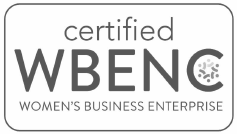More than 80 percent of small businesses use social media for marketing, according to LinkedIn. And, while the best platforms for each business vary based on a company’s target audiences, the nature of their marketing content and the goals they hope to achieve, these social media marketing tips will help increase your company’s social media ROI.
- Set measurable goals. What do you hope to achieve by establishing a presence on a particular platform and how will you measure success?
- Align your social media strategy with you marketing plan and your business goals. An integrated approach will ensure all marketing channels are working together to achieve a common set of goals.
- Tailor your content to suit the platform. What resonates on Twitter won’t yield the same response on Facebook.
- Focus on mobile consumers. Social media is the number one driver of website referral traffic. As more and more people access social accounts from smartphones and tablets, the mobile user experience needs to remain at the forefront of your social media plan.
- Supplement organic content with sponsored content. The declining reach of organic Facebook content is no secret. And, sponsored content on LinkedIn allows companies to purposefully target a carefully defined target audience. Be sure to outline the role of sponsored content in your social media marketing strategy.
- Don’t sync your accounts. If your Facebook content is feeding to Twitter, Twitter doesn’t know the grammatically correct place to insert a link to read more. And, clicking from Twitter, through to Facebook and then having to potentially hit “read more” to see a company’s Facebook update in its totality doesn’t yield a positive user experience.
- Keep an eye on the competition. Know which platforms your competitors are using to engage their online audiences and what challenges and opportunities this presents for your own social media marketing plan.
- Use social media to drive traffic. Take your social audiences from surface-level engagement to measurable action by linking to landing pages with compelling content, offers and incentives.
- Be unique. Ensure your social media content isn’t the exact same content that can be found in other places. Your audiences need a reason to follow and engage with your brand on social media.
- Don’t set it and forget it. Social media is a living, breathing marketing channel that requires constant monitoring. Engaging with your online communities is key to relationship building and, ultimately, generating ROI.
- Be consistent. Establishing a brand presence on a wide range of social media platforms can be tempting but long droughts of content can damage relationships and make it challenging to optimize the value of your efforts. Be sure you create a program with a frequency of sharing and engagement that is realistic given your company’s internal and external marketing resources.
- Show some personality. Social media marketing is significantly more conversational than a sell sheet, brochure, and other traditional marketing assets. Whether it’s an opportunity to become better acquainted with the team, some “behind the scenes” action or a dash of industry wit, be personable and engaging.
Social media can play an important role in executing a successful integrated marketing program. By focusing on the platforms that are most popular among your company’s target audiences, tailoring your content to suit the chosen platform(s), and offering unique and relevant content that stakeholders can’t obtain through your company’s other marketing channels, businesses can leverage social media to achieve tangible marketing ROI.

